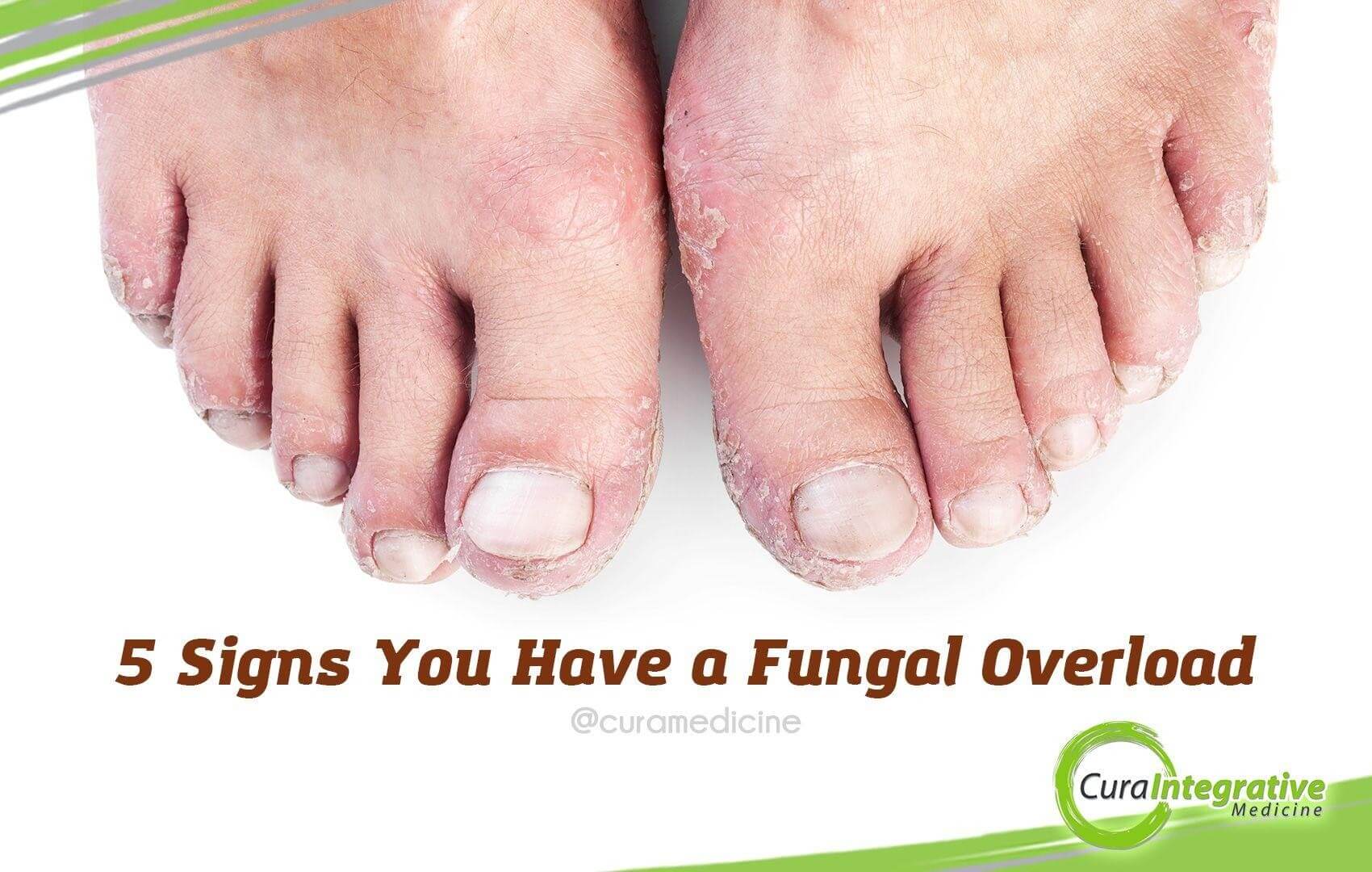Koji is a less known superfood found in a variety of macrobiotic foods. Containing Aspergillus oryzae, koji is used to make foods such as miso, amazaki and tamari. Read More…

5 Signs You Have a Fungal Overload
Posted 10 Aug '18
Are you aware that within our gastrointestinal tract lives millions of microorganisms — bacteria, fungus, and even parasites. Some are beneficial to human health, having different roles to play in the digestive system and absorption of nutrients, helping the immune system. These are those probiotics you have heard about which contain “friendly bacteria”.
When there is an imbalance in the microbiome environment, it could lead to fungal overload, which could break down the digestive tract’s walls and get into the bloodstream. When this happens, toxins are spread throughout the body, causing many different health issues — physical and even mental.
How do you get fungus?
It could be any of the following:
- Sick building or environmental contamination. You could have a damp building or air-condition system feeding spores to you
- Overgrowth in parents. It could have been contracted at the time of conception from either parents; during the fetal development stages when the mum has poor gut health at the time of pregnancy
- Delivery through Caesarean section and other surgical procedures
- Less than six months of being breastfed (for babies)
- Corticosteroids, treatment for allergies, asthma, and arthritis, but that have been observed to cause yeast infections
- Other prescription drugs and pills such as birth control pills, which disrupt the balance in the gut
- Alcohol. Alcohol is mostly fermented and has sugars that is food for the yeast, allowing them to multiply and take over the immune system
- Weak immune system. Mostly affected are those that have autoimmune conditions, diabetes, obesity, or have been exposed to environmental toxins, stress, or hormonal changes.
- Poor diet can also cause the immune system to drop and feed fungal infections.
Here are the five signs that mean you may have a fungal overload
- You have weak immune system. If it takes you longer to recover from a minor illness, or infections keep coming back after only a short while of recovering from the last one, you may have a fungal overload.
- You have digestive issues such as excessive passing of gas, burping, diarrhea, constipation or stomach cramps. They are the body’s way of saying that there is an imbalance of healthy gut microbiota in your system and that it is losing to fungal infection, and needs medical intervention.
- You have infections or inflammation on your skin. It could be dryness, red patches, pimples, hives, acne, rash, itchiness, eczema, psoriasis, dermatitis, rosacea, ringworm, or any other type of skin problem. Fungus that has declared a part of your body its home, and has spread to a different part, could manifest as different types. You may have athlete’s foot and another yeast infection on your crotch at the same time, coming from a single source and has just become systemic.
- You experience brain fog or other mood problems such as mood swings, irritability, anxiety attacks, depression, manic feelings, poor concentration, or even poor physical coordination.
- You have gained weight but has poor appetite. Low libido, exhaustion despite sufficient sleep. These are signs that your body is trying to fight off an infection within.
Getting Rid of Fungal Infections Naturally
In order to fight off fungal infections effectively, these need to be done:
- Maintain a healthy diet and lifestyle. Regularly exercise. And regulate food intake. Best to avoid sugars, starchy vegetables, and carbs. Increase meat, poultry, eggs, nuts, seeds, healthy oils, and most especially, vegetables. Garlic, coconut oil, and bone broth are some foods that have antifungal properties. Make sure they are all organic and free from pesticides.
- Take probiotics regularly in order to restore the balance of gut microbiota. Eat cultured or fermented foods such as yogurt, kefir, kimchi, natto, and sauerkraut that contain good bacteria. Best to get checked for leaky gut which cause food sensitivities.
- Avoid exposure to toxic synthetic chemicals that are harmful not only to the environment, but also to our health. We are often unconscious of the risks when we handle or get exposed to household cleaners, cosmetics, perfume, and some paint.
- If you feel you have emotional, mental, or psychological problems, don’t hesitate to ask for help. Practice deep breathing, and mindfulness meditation.
Need help with some functional medicine testing or guidance to overcome your fungal infections? Get in touch or schedule an appointment now





